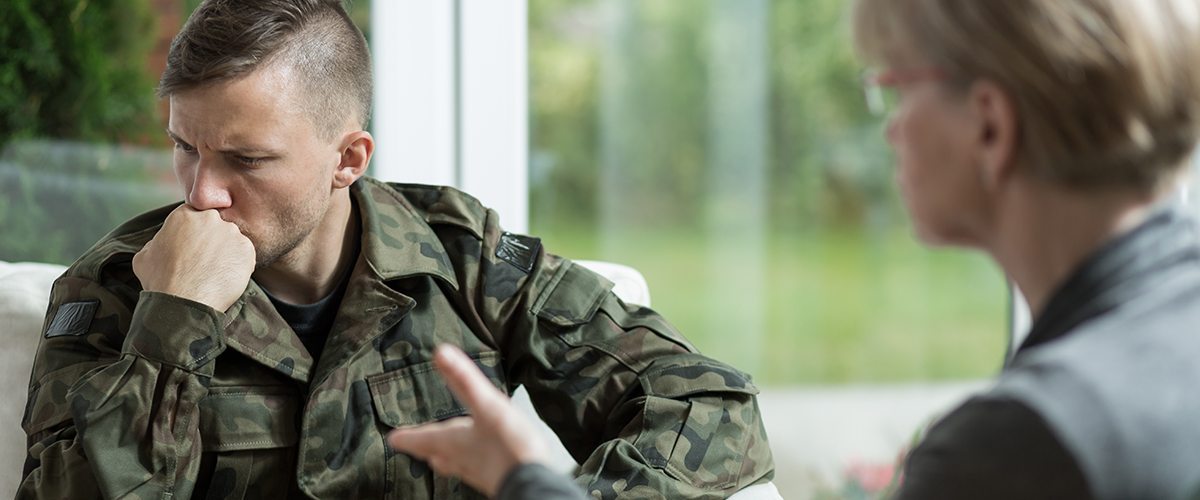[vc_row][vc_column][vc_column_text]
Veterans Affairs Secretary acknowledges there’s evidence that cannabis could benefit veterans, but says federal law needs to change to make it accessible.
During a recent White House press conference, Veterans Affairs Secretary David Shulkin acknowledged that evidence indicates medical marijuana could be beneficial for addressing conditions that commonly affect veterans, but federal law prohibits VA physicians from recommending it. Until marijuana is rescheduled under federal law, Shulkin said, the VA will not “be able to prescribe marijuana for conditions that may be helpful.”
Compared to civilians, veterans have a greater prevalence of post-traumatic stress disorder (PTSD) and traumatic brain injury (TBI). Both conditions have been found to be associated with an increased risk for suicide among veterans. A report published in 2016 by the VA found that an average of 20 veterans died from suicide each day in 2014.
“That should be unacceptable to all of us,” Shulkin said to reporters at the recent “State of the VA” address. “This is a national public health crisis, and it requires solutions that not only VA will work on but all of government and other partnerships in the private sector, nonprofit organizations.”
Evidence indicates that the cannabinoids found in cannabis can help those with PTSD manage anxiety and fear. Just earlier year, investigators found the non-psychoactive cannabinoid cannabidiol (CBD) effectively reduced acute and long-lasting fear memory. Studies have also shown cannabis to possess neuroprotective and anti-inflammatory properties that improve recovery following a TBI.
“There may be some evidence that this is beginning to be helpful and we’re interested in looking at that and learning from that,” Shulkin said.[/vc_column_text][/vc_column][/vc_row][vc_row][vc_column][vc_single_image image=”17365″ img_size=”1200×250″ onclick=”custom_link” img_link_target=”_blank” link=”https://www.medicalmarijuanainc.com/overview-of-medical-marijuana-research/”][/vc_column][/vc_row][vc_row][vc_column][vc_column_text]Despite the supporting research and 29 states legalizing marijuana for medical purposes, veterans receiving treatment through the VA are unable to get legal access to cannabis. Federally, marijuana is classified as a Schedule I substance and therefore prohibited. Federal law binds the VA, and doctors are not even allowed to discuss marijuana as a potential treatment option, even in states where medical marijuana is legal.
“Right now, federal law does not prevent us at VA to look at that as an option for veterans,” said Shulkin. “I believe that everything that could help veterans should be debated by Congress and by medical experts and we will implement that law. So if there is compelling evidence that this is helpful, I hope that people take a look at that and come up with the right decision, and then we will implement that.”
Shulkin’s press appearance was in response to a recent public plea from the American Legion for the federal government to reschedule marijuana. Doing so, the nation’s largest veterans service organization argued, would “clear the way for clinical research.”
Following Shulkin’s address, American Legion National Commander Charles E. Schmidt responded in a statement, saying, “The American Legion thanks Secretary Shulkin for his acknowledgement of the medicinal potential of cannabis, and we stand ready to fight alongside him to get this Administration to reschedule marijuana and remove onerous barriers to medical research – especially into marijuana’s efficacy in the treatment of PTSD, TBI, chronic pain, and other myriad illnesses.”
Learn more about the research done investigating cannabis’ effects on PTSD and TBI by visiting our education page.[/vc_column_text][/vc_column][/vc_row]






